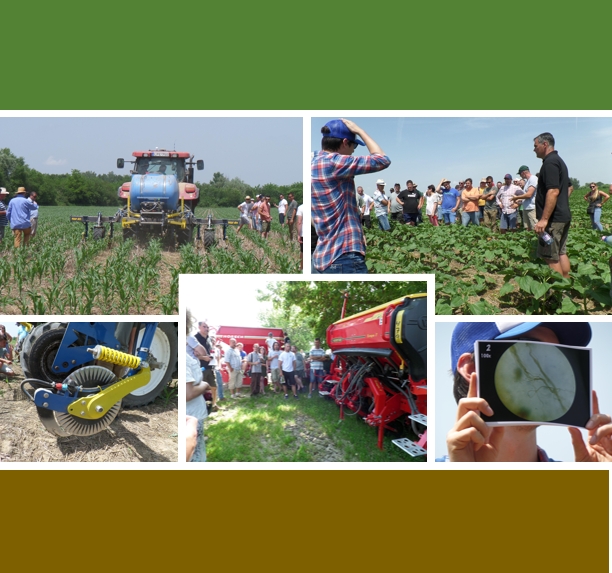Field day for soil conservation farmers: Farm visit focusing on the crop management of direct sown corn
In Hungary, soil conservation management is in the focus of the UNISECO case study thus we investigate farms adapting reduced or no-till soil management.
On the 13 June 2019, Démétér Biosystems organised a field day in Pusztakovácsi at the Berend farm. The main topic of the day was the growing of corn and sunflower in a no-till system. The organisers received an exceptionally high interest from the farmers, there were more then eighty participants, the registration rate had doubled the day before the field day was held.
The day started at the ranch of the farm, where the owner briefly introduced the farm, and the history of transition of the farm into no-till management. He showed also the machines used on the fields, with the technical details of settings.
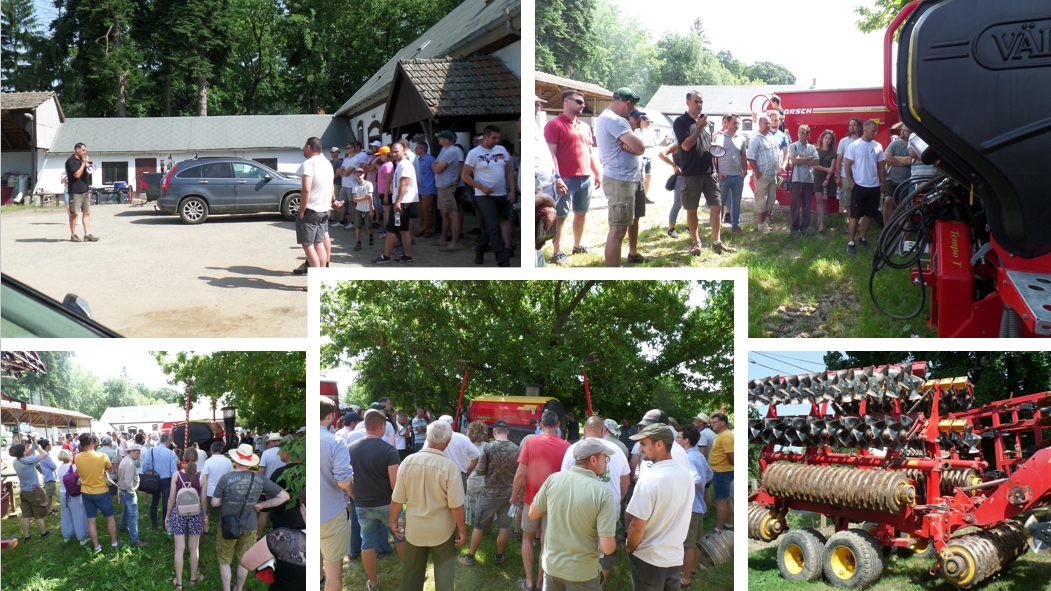
The day was continued at the edge of a corn field where they had conducted experiments with different cover crops.
The first talk was about climate change: researher Dr. Zsolt Hetesi introduced the basic processes of climate change with a special focus on the effects on agriculture. He emphasised the strategies for adaptation and mitigation and named no-till management as one viable option. He is also a pracitioner experimenting with reduced tillage, so he also briefly decribed his own experiences.
The following presentation was about soil life and soil biota by phd student Vitália Baranyai, who made some investigations on the soils of the farm focusing on the soil biota and soil quality. She explained in details how soil management affects soil biota and how soil biota helps farmers if there are adequate conditions for it.
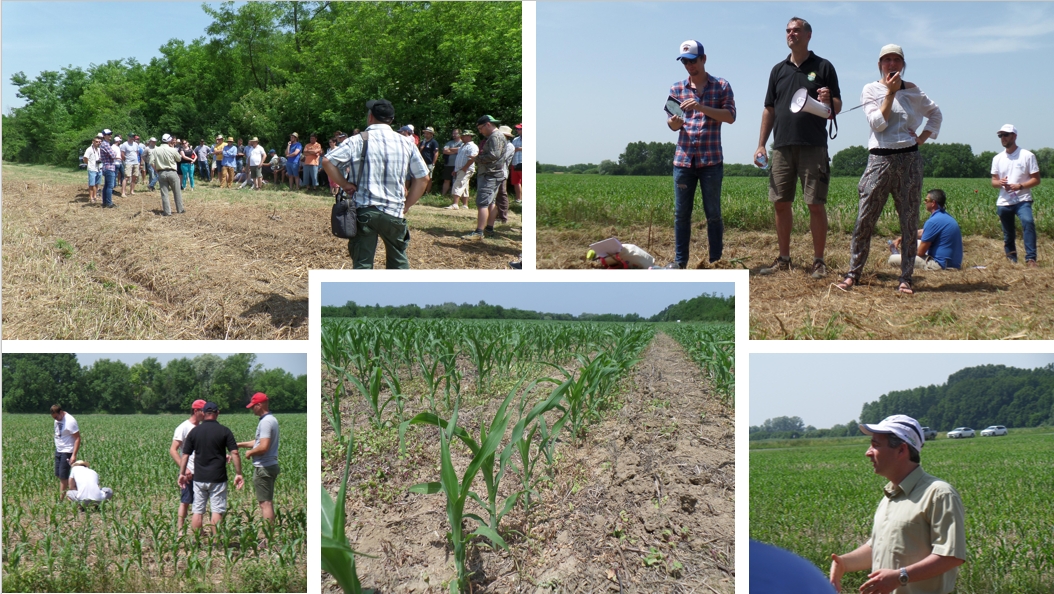
Zsombor Diriczi, head of the Démétér company introduced their experiments with different cover crop mixtures on the field, the experiment design, the mixtures and he summarised the results and conclusions. The participants could observe the outcomes with their own eyes on the parcel.
A machine demonstration followed this, Norbert Sütő representative of NorAn Techologies, a Hungarian machinery development company introduced their liquid fertiliser injector machine with the newest developments.
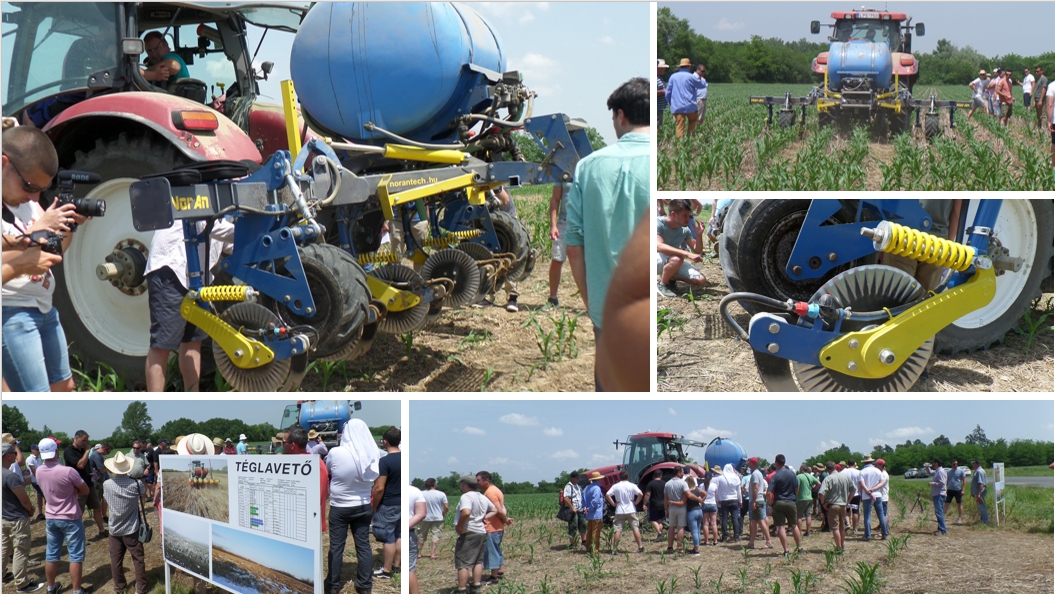
After that, in the middle of a no-till managed sunflower field Zsolt Lövényi and Éva Hoffman, plant protection experts talked about the weeds and the plant protection strategies in a no-till system. They described how the flora changes, and which herbicides can be used.
Finally, Mihány Lajos, from Agrofil explained how the nitrogen uptake of corn is working and in general how nitrogen cycle works in the soil and how we alter it with fertilisation.
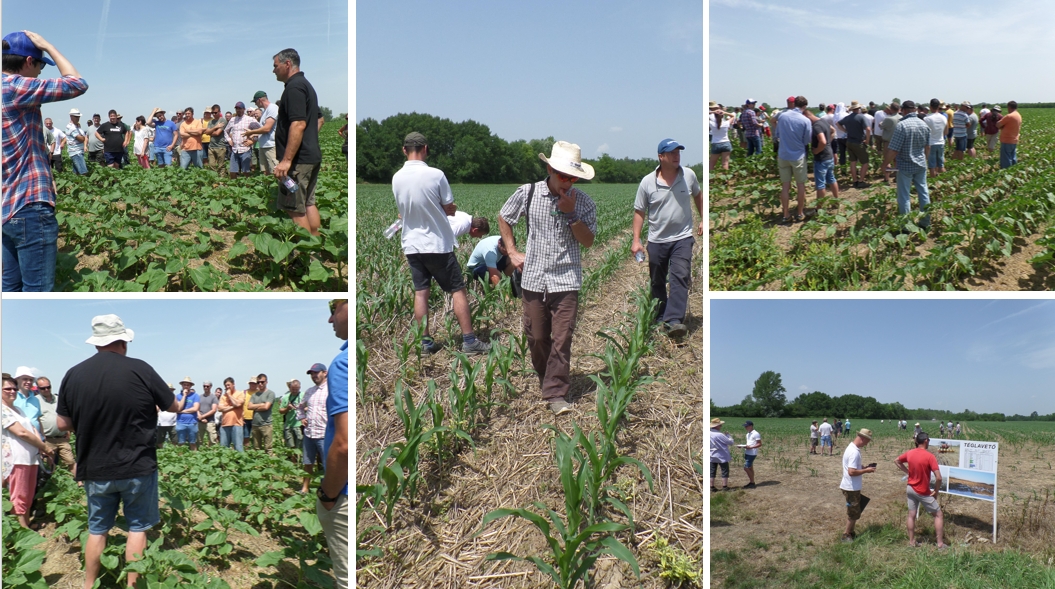
Overall, farmers could acquire useful information during the day, they could see how no-till systems are working in the practice. After the field visit there was an option for exchanging experiences during lunchtime.
The number of participants clearly shows a constantly growing interest for innovative soil management as most farmers experience the adverse effects of climate change and soil erosion on their fields.
This field day gave a smart combination of more technical details with the theoretical bakground, all demostrated on the field. It was also a useful day for the Hungarian UNISECO researchers' team as this high participation of farmers showing their interests underline the importance of the UNISECO case study topic chosen in contributing to the agroecological transition of agriculture in Hungary.
Author: Alfréd Szilágyi
Photos/video: Katalin Balázs
